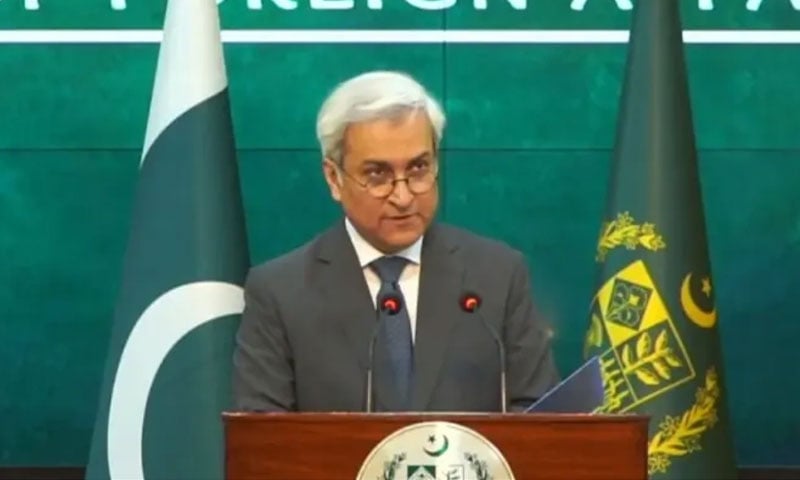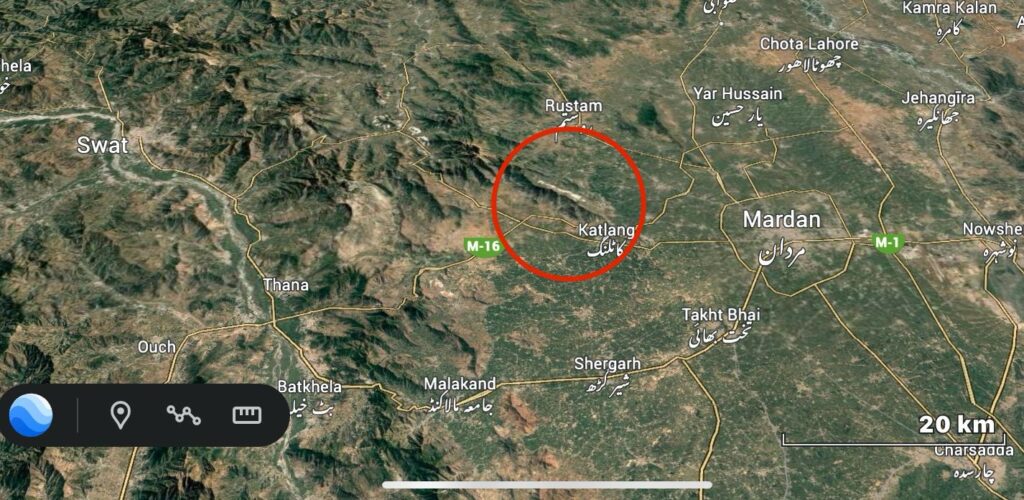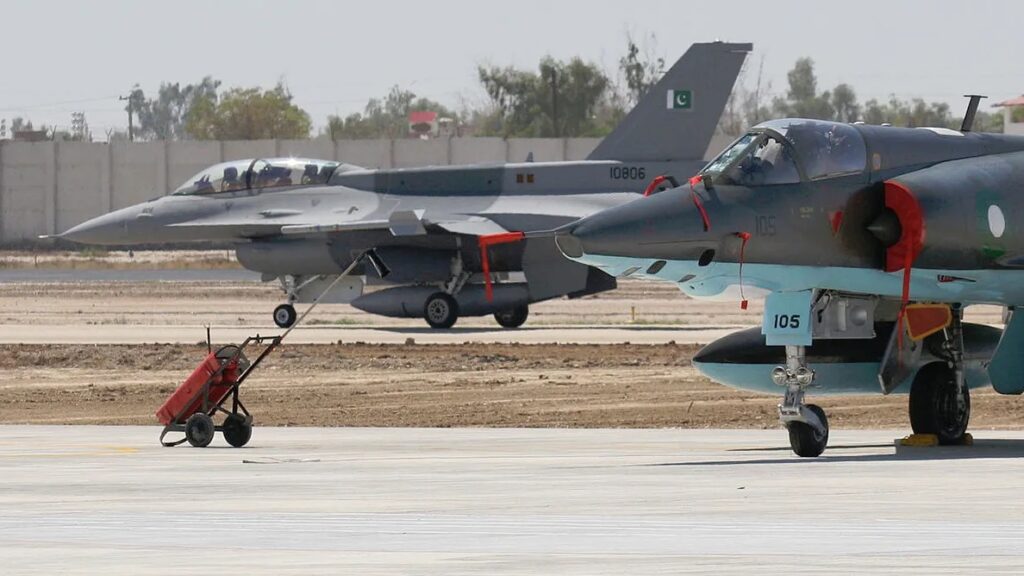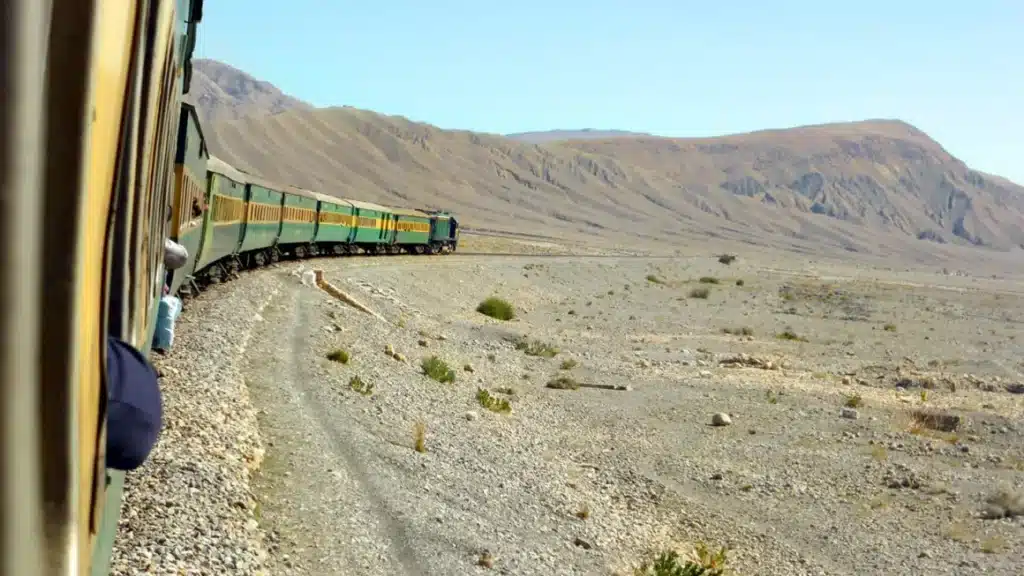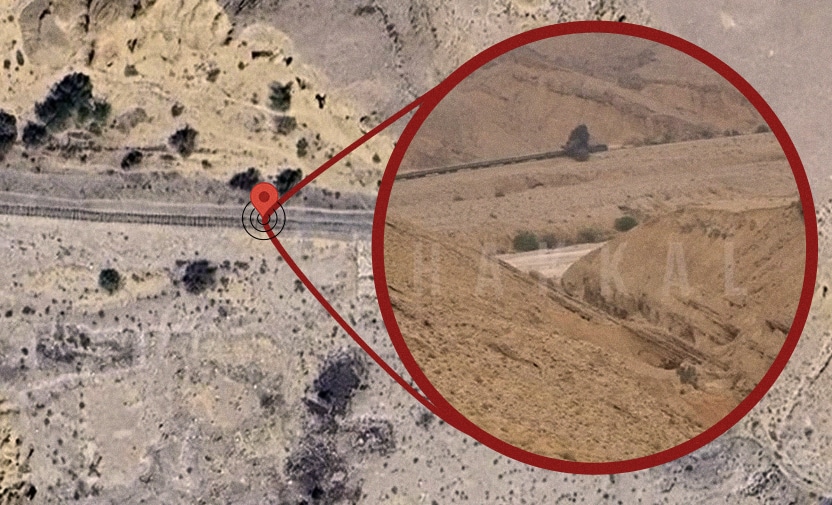ISLAMABAD: Foreign Office Spokesperson Tahir Andarabi announced that the second round of talks between Pakistan and the Afghan Taliban regime concluded in Istanbul this week. Addressing the weekly media briefing, Andarabi said Pakistan participated in the discussions with a constructive and positive approach, emphasizing that Afghan soil must not be used for terrorism or any kind of provocation against Pakistan.
He said Pakistan has consistently urged the Taliban regime over the past four years to act against Fitna al-Hindustan and Fitna al-Khawarij, yet the recent surge in terrorist incidents remains a serious concern. “Pakistan stands fully prepared to defend its territorial integrity and sovereignty and will respond firmly to any future provocations,” he asserted.
When asked about specific outcomes of the talks, the spokesperson said the discussions involved sensitive issues, such as whether the Taliban had declared the TTP a banned outfit or issued an edict against terrorism. “Such details cannot be disclosed at this stage,” he said, adding that Pakistan’s delegation from the Foreign Office attended the talks and would brief the media once major progress occurs in the next phase.
Andarabi clarified that the communiqué issued by Türkiye served only as a covering note, not as a final joint declaration, and that no written guarantees have yet been finalized. “We must wait for the next stage,” he noted. He thanked Qatar and Türkiye for facilitating the dialogue, saying their mediation helped move the process toward a reconciliatory path.
The spokesperson reaffirmed that Pakistan’s government and armed forces remain fully prepared and vigilant to safeguard national security.
On international affairs, Andarabi reiterated Pakistan’s strong condemnation of Israel’s violations of the ceasefire in Gaza, calling them a setback to global peace efforts. He said Pakistan continues to demand the establishment of an independent Palestinian state with Jerusalem as its capital.
The Foreign Office also observed October 27 as “Black Day” to express solidarity with the Kashmiri people in their struggle for self-determination. Andarabi added that Pakistan appreciated the U.S. role in maintaining the Pakistan-India ceasefire but remarked that certain incidents, such as aircraft losses, had exposed “bitter realities” for India that it still struggles to accept.
Responding to a question about the Foreign Ministry’s role in the Afghan dialogue, Andarabi clarified that the ministry has been part of the entire process. He confirmed that the Afghan Transit Trade border remains closed until conditions improve.
He said no written agreement has yet been reached because talks are ongoing, though the Taliban have acknowledged the presence of Fitna al-Hindustan and Fitna al-Khawarij. He revealed that a senior political figure would likely serve as Pakistan’s lead negotiator in the next phase, and that Afghanistan has assured a ceasefire, with the military leadership tasked to verify and determine any violations.
Commenting on the U.S. decision to extend India’s use of Iran’s Chabahar Port for six months, Andarabi said Pakistan has taken note of the development and welcomes economic initiatives in Iran. However, he expressed concern that India might exploit the route to organize anti-Pakistan activities under the Fitna al-Hindustan network.
On India-U.S. defense cooperation, Andarabi said Pakistan would assess the agreement before offering a detailed response. He criticized the recent statement by the Afghan ambassador as “undiplomatic and misleading,” noting that the envoy should have addressed any concerns directly with the Foreign Office.
Andarabi emphasized that Pakistan holds no objections to Türkiye’s issued communiqué and views it with respect. Responding to a question, he said he was not aware whether the issue of desecration of Pakistani soldiers’ bodies was formally raised with Afghan authorities but expressed confidence that it likely was.
He confirmed that Pakistan’s military leadership is monitoring Indian military exercises near Sir Creek and warned that any “adventurism” would be met with a strong response.
On the question of sending Pakistani troops to Gaza, the spokesperson clarified that Pakistan is engaged in consultations with Arab countries on the implementation of the Gaza peace agreement. Regarding the return of Afghan refugees through Torkham and other crossings, he advised seeking details from the Ministry of Interior.
Discussing Pakistan-Saudi relations, Andarabi said Prime Minister Shehbaz Sharif attended the Future Investment Initiative Forum in Riyadh on October 29 at the invitation of King Salman. During the visit, the Prime Minister met Crown Prince Mohammed bin Salman, and both sides announced a Joint Investment Framework to enhance cooperation in agriculture, industry, IT, and mining sectors.
He added that Deputy Prime Minister and Finance Minister Ishaq Dar also met Saudi Foreign Minister Prince Faisal bin Farhan to discuss bilateral ties, investment, and economic collaboration. The visit concluded with a joint communiqué reaffirming Pakistan and Saudi Arabia’s commitment to expanding economic and investment partnerships.

